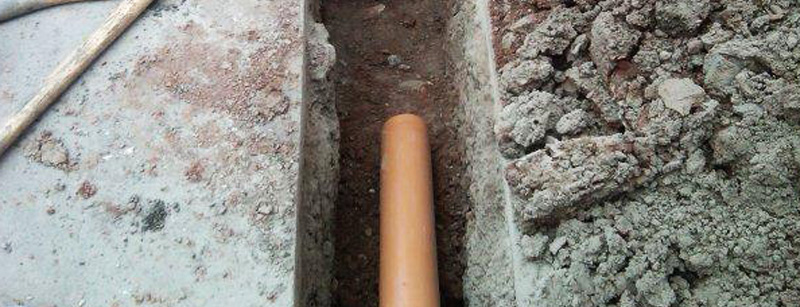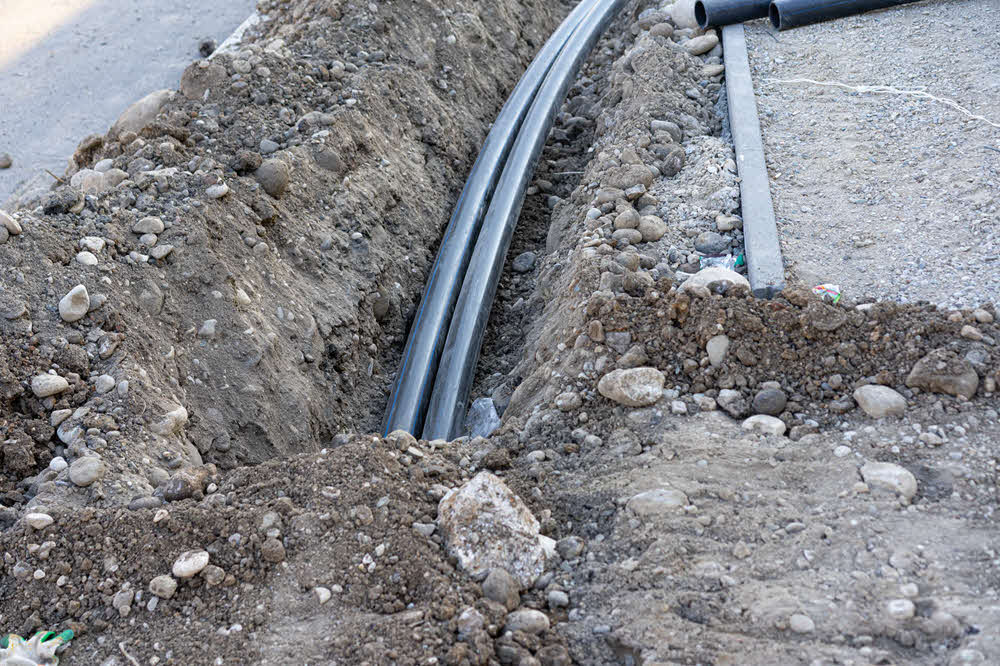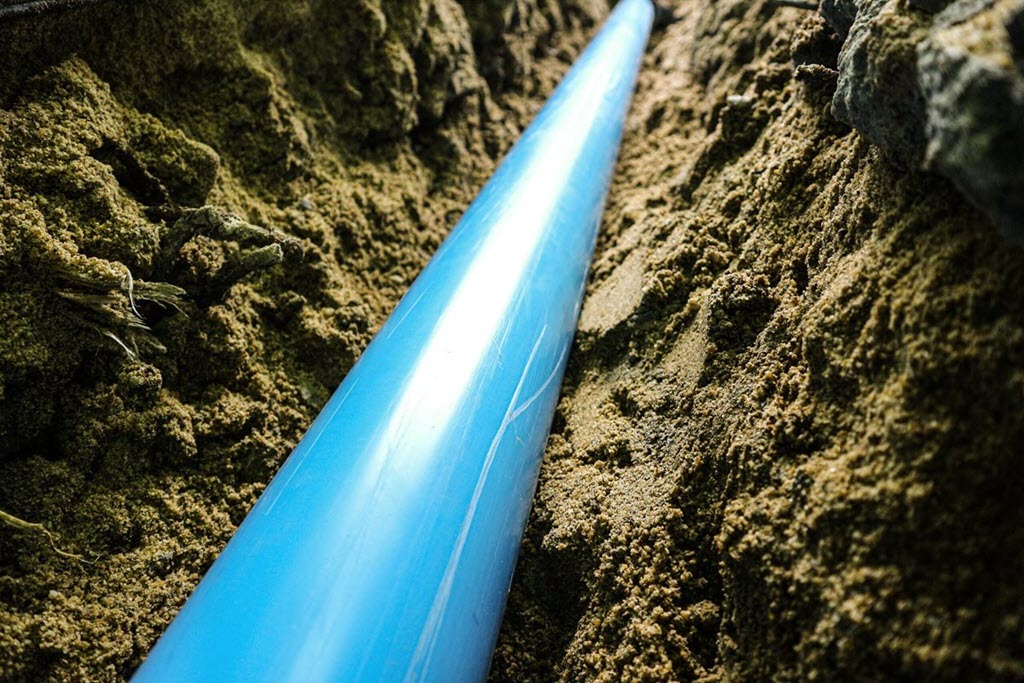Pipe Laying Servicesin Romeo MI
Pipe Laying Services to Support Efficient Infrastructure Development
We Are Locally Owned & Operated For Over 37 Years
Contact Us Today!
We Serve Businesses In And Around The Following Cities:
About Pipe Laying Services
The Significance of Pipe Laying in Commercial Properties in Romeo
In the realm of successful commercial property construction and maintenance in Romeo, one critical task inevitably stands out – pipe laying. A skill-intensive process requiring intricate city planning and technical know-how, pipe laying is fundamental to robust infrastructure development. However, achieving a streamlined and efficient pipeline system, whether it’s for a storm water drain pipe or an underground gas line, requires a profound understanding of the process involved. This guide aims to provide an illuminating insight into the pipelaying world, underscoring its benefits, practical implementation, and key considerations for commercial property owners in Romeo.
Understanding the Pipe Laying Process
While the pipelaying process might appear as a straightforward task of laying pipes in a trench, the reality is far more intricate. The stages involved include an initial site examination, designing pipe blueprints, excavation, pipe installation, testing the lines, and finally, restoration of the site. A preferable choice for pipelaying in commercial properties is PVC storm water pipe, thanks to its corrosion-resistant and robust nature. PVC pipes are often employed in running lines underground, be it propane or gas lines, or even pipes for rainwater drain. D&J Contracting has a rich history of successful pipelaying endeavors in Romeo, boasting unparalleled expertise and finesse in ensuring smooth and efficient projects.
The Importance of Effective Storm Water Management
In the context of commercial properties, storm water management becomes crucial. An inadequate or faulty storm water drain pipe system can cause considerable damage and disruption. By wisely integrating comprehensive pipelaying services, the underground storm pipe systems can efficiently manage large volumes of rainwater and prevent potential flooding. Expert service providers like D&J Contracting specialize in drain pipe for rainwater systems, ensuring both preventative and corrective stormwater management methods.
Safe Transfer of Utilities
Just as critical as storm water management is the safe and reliable conveyance of utilities like propane or gas. Underground pipelaying plays a pivotal role in this task. Running propane line underground or running gas pipe underground requires both precision and safety measures. One slight mishap during the process can lead to significant safety issues. Proper underground sewer pipe installation ensures safe and efficient utility provision to commercial properties. D&J Contracting, with their hands-on expertise, ensures optimum safety and efficiency in underground utility line setups in Romeo.
Benefits of Professionally Laid Pipes
Enlisting professional pipelaying services bears numerous benefits for Romeo’s commercial property owners. A well-laid drain pipe for rainwater can effectively eliminate the perils of waterlogging. A smoothly running propane line underground can ensure uninterrupted fuel supply. The right PVC storm water pipe system can handle stormwater overflow, protecting the building’s facade and foundation from water damage. Additionally, professionally executed underground sewer pipe installation guarantees sanitary disposal of waste. D&J Contracting serves as a comprehensive solution for all these pipelaying needs, combining competence, commitment, and cost-effectiveness.
Real-World Applications of Efficient Pipe Laying
Commercial properties in Romeo often showcase excellent examples of effective pipelaying. Take for instance, a leading hotel in downtown Romeo that confronted repeated flooding during the rainy season. Upon hiring D&J Contracting, a thorough site analysis led to a complete overhaul of their faulty, outdated storm water drain pipes. Post implementation of the efficient PVC storm water pipes, the property has since reported zero flooding incidents.
Similarly, an office building in Romeo faced the challenge of inconsistent propane delivery due to damaged underground lines. Once D&J Contracting experts got on the case, new, efficient, and reliable lines were installed, eliminating any further disruptions in their fuel supply.
The value of professional, efficient pipelaying services in Romeo is tangible and undeniable.
Moving Forward with Expert Pipe Laying Services
Whether it’s establishing an efficient storm water drain pipe network, running a propane line underground, or carrying out an underground sewer pipe installation, the role of a reliable pipelaying service provider is indispensable. Romeo, with its burgeoning commercial infrastructure, demands only top-tier pipeline solutions. D&J Contracting, backed by a legacy of quality and precision, offers comprehensive pipelaying solutions that guarantee efficiency, longevity, and peace of mind for property owners.
Constructing and maintaining a commercial property’s pipeline system requires both skill and expertise. The success of such ventures rests on the shoulders of experienced professionals who understand and respect the intricacy involved in pipelaying. As we continue to construct, renovate, and maintain our commercial buildings, let’s ensure they stand strong and functional, thanks to efficient, expertly laid pipelines. Contact D&J Contracting today to discuss your commercial property’s pipelaying needs.
Pipe Laying Services Gallery


Call Us Today to receive your Free Quote for
Pipe Laying in Romeo
Serving: Romeo, Michigan

About Romeo, Michigan
A settlement here was originally occupied by the indigenous Chippewa (Ojibwe), an Algonquian-speaking people who were part of a large language family of tribes extending to the Atlantic Coast. Those tribes around the Great Lakes are thought to have migrated to this area by the 12th century.
The early European-American settlers in this area referred to the Chippewa settlement as “Indian Village”. In the 1820s and 1830s more migrant European-American families began to settle in the area, building homes and establishing businesses. They renamed the community “Hoxie’s Settlement”, after a man who opened an inn on Main Street. In 1839, Hoxie’s Settlement became incorporated and was renamed as the village of Romeo. The name was suggested by the wife of local merchant Nathaniel Taylor because it was “short, musical, classical and uncommon.” Romeo celebrated its 175th anniversary on March 9, 2013.
Romeo once served as a trading center for the timber industry, and had many mills processing lumber from the region. Many wealthy timber families resided there. Dozens of stately Victorian mansions survive. Romeo is distinct in the area for having a fairly robust, traditional downtown, which has never suffered a major fire. Because of this, some stores and restaurants downtown have features such as original tin ceilings from the Civil War. In the early 20th century, Romeo was the site of an early business devoted to the new automobile industry: the Detroit Auto Vehicle Company operated here from 1904 until 1908.
The village is in northwestern Macomb County, situated at the southeast corner of Bruce Township, with a portion extending south into Washington Township. Armada Township is adjacent to the east and Ray Township to the southeast. M-53 passes through the east side of the village, leading north 16 miles (26 km) to Imlay City and south 30 miles (48 km) to the eastern side of Detroit.
According to the United States Census Bureau, the village of Romeo has a total area of 2.05 square miles (5.31 km), of which 0.002 square miles (0.005 km), or 0.10%, are water. East Pond Creek crosses the easternmost part of the village, flowing east to the North Branch of the Clinton River, part of the Lake St. Clair watershed.
| Census | Pop. | Note | %± |
|---|---|---|---|
| 1850 | 330 | — | |
| 1880 | 1,629 | — | |
| 1890 | 1,637 | 0.5% | |
| 1900 | 1,580 | −3.5% | |
| 1910 | 1,787 | 13.1% | |
| 1920 | 2,102 | 17.6% | |
| 1930 | 2,283 | 8.6% | |
| 1940 | 2,627 | 15.1% | |
| 1950 | 2,985 | 13.6% | |
| 1960 | 3,327 | 11.5% | |
| 1970 | 4,012 | 20.6% | |
| 1980 | 3,509 | −12.5% | |
| 1990 | 3,520 | 0.3% | |
| 2000 | 3,721 | 5.7% | |
| 2010 | 3,596 | −3.4% | |
| 2020 | 3,767 | 4.8% | |
| U.S. Decennial Census | |||
As of the census of 2010, there were 3,596 people, 1,501 households, and 979 families residing in the village. The population density was 1,780.2 inhabitants per square mile (687.3/km). There were 1,659 housing units at an average density of 821.3 per square mile (317.1/km). The racial makeup of the village was 91.9% White, 3.8% African American, 0.2% Native American, 0.5% Asian, 1.1% from other races, and 2.6% from two or more races. Hispanic or Latino people of any race were 5.7% of the population.
There were 1,501 households, of which 32.2% had children under the age of 18 living with them, 46.2% were married couples living together, 14.9% had a female householder with no husband present, 4.1% had a male householder with no wife present, and 34.8% were non-families. 30.8% of all households were made up of individuals, and 13.6% had someone living alone who was 65 years of age or older. The average household size was 2.36 and the average family size was 2.96.
The median age in the village was 40.9 years. 23.5% of residents were under the age of 18; 7.7% were between the ages of 18 and 24; 24.1% were from 25 to 44; 29.4% were from 45 to 64; and 15.3% were 65 years of age or older. The gender makeup of the village was 46.4% male and 53.6% female.
As of the census of 2000, there were 3,721 people, 1,528 households, and 993 families residing in the village. The population density was 1,842.8 inhabitants per square mile (711.5/km). There were 1,605 housing units at an average density of 794.9 per square mile (306.9/km). The racial makeup of the village was 92.66% White, 4.35% African American, 0.16% Native American, 0.40% Asian, 0.11% Pacific Islander, 0.67% from other races, and 1.64% from two or more races. Hispanic or Latino people of any race were 2.74% of the population.
There were 1,528 households, out of which 33.3% had children under the age of 18 living with them, 48.2% were married couples living together, 13.5% had a female householder with no husband present, and 35.0% were non-families. 31.3% of all households were made up of individuals, and 13.2% had someone living alone who was 65 years of age or older. The average household size was 2.40 and the average family size was 3.04.
In the village, the population was spread out, with 26.1% under the age of 18, 8.2% from 18 to 24, 30.1% from 25 to 44, 21.4% from 45 to 64, and 14.2% who were 65 years of age or older. The median age was 36 years. For every 100 females, there were 87.2 males. For every 100 females age 18 and over, there were 82.5 males.
The median income for a household in the village was $48,015, and the median income for a family was $60,179. Males had a median income of $51,875 versus $27,696 for females. The per capita income for the village was $22,588. About 3.2% of families and 3.9% of the population were below the poverty line, including 6.5% of those under age 18 and 3.9% of those age 65 or over.
The government of the village of Romeo consists of elected and appointed officials. The elected officials include six council members, one president, treasurer and clerk. The appointed officials include the Chief of Police, Department of Public Works Director, and Village Administrator. Currently, the elected clerk also holds the appointed position of Village Administrator. The day-to-day operations of the village are handled by the Clerk/Administrator.
Since the turn of the 21st century, Romeo has worked to upgrade its infrastructure. It has improved the streetscape on Van Dyke Avenue, the main road through the village, and installed a new water tower. It had earlier established one of the few wastewater treatment plants in the region. While most of the metropolitan region receives water and sewage service from the City of Detroit, Romeo independently sustains its own supply of water and manages treatment of village sewage. This was especially valuable during the blackout that occurred throughout the entire northeastern United States on August 14, 2003. Romeo was one of the few areas in the Detroit metropolitan area to have clean running water. More recent infrastructure improvements include a complete renovation of the village water system, and replacement of all the sidewalks throughout the village.
Call Us Today to receive your Free Quote for
Pipe Laying in Romeo
Related Services in Romeo, Michigan
We Serve Businesses In The Following Zip Codes:
48007, 48015, 48021, 48026, 48035, 48036, 48038, 48042, 48043, 48044, 48045, 48046, 48047, 48048, 48050, 48051, 48066, 48071, 48080, 48081, 48082, 48083, 48084, 48085, 48088, 48089, 48090, 48091, 48092, 48093, 48098, 48099, 48225, 48230, 48236, 48310, 48311, 48312, 48313, 48314, 48315, 48316, 48317, 48318, 48397